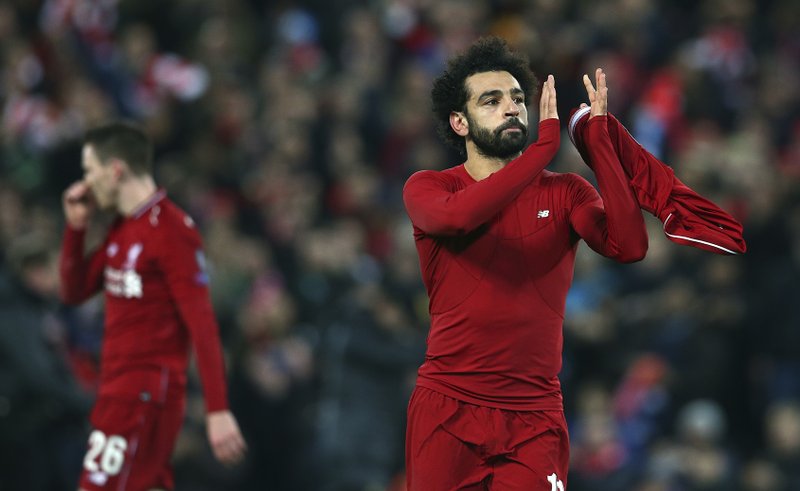
Stanford University’s Immigration Policy lab (IPL) released a study on soccer star Mohamed Salah’s constructive social impacts at many levels during his stay with Liverpool. The study mainly shows that since the Muslim Egyptian footballer arrived in Liverpool’s Merseyside, the area has witnessed a noticeable decline in hate crimes of 18.9 percent.
Notably, hate crimes are the only subcategory of crimes that saw this decrease in Liverpool.
The study paid tribute to Salah’s contribution in reducing race hatred among citizens in Meryside. Since Salah joined the Reds’ club two seasons ago, he has not only made international headlines, but has also fascinated fans with his compassionate behavior, which has earned him iconic fame.
The study’s introduction raised one preeminent question: “Can exposure to successful celebrities from stigmatized groups reduce prejudice toward that group at large?”
The study answered this question with accumulated data figures and statistics.
The IPL conducted a survey of 8,060 Liverpool fans in addition to observing 15 million tweets and monitoring county-month hate crimes to gauge how Salah’s presence in the UK has influenced Islamophobic behaviors and attitudes.
The compiled “Islamophobic behaviors” took various forms including anti-Muslims tweets. The study indicated that Reds fans’ rates of hatred-based tweets lessened from 7.2 percent down to 3.4 percent since the arrival of the famed Egyptian.
Researchers who worked on generating these findings believe that this drop is a result of spotlighting respectable role models such as Salah and other notable celebrities.
ILP’s researchers believe that Salah played a significant role in changing the mindset of English people towards Islam, which was entertainingly illustrated in the Reds’ chants during Salah’s appearances, including:
“If he scores another few / Then I’ll be Muslim, too,
If he’s good enough for you / He’s good enough for me
Sitting in a mosque / That’s where I wanna be”.
Furthermore, researchers noted that discriminatory proclamations generalizing broadly about ethnic and religious groups, usually common in Western societies, remarkably diminished.
According to the study, from the start, European fans were not familiar with some Islamic rituals practiced by Salah, including the sujood, which he performs after any victory during a match. Salah’s sujood was featured in the videogame FIFA 2019 that went viral globally in no time.
These practices have stirred arguments. Some believe that Salah illustrates “favorable images of Muslims, helping to reduce stereotypes and break down barriers within communities” while others did not agree that Salah has been behind those impacts.
In the same vein, the study drew a relationship between prejudice and exposure, connecting Salah’s positive appearance on social media networks with declined prejudice. It analyzed the ways in which Salah’s activities, pictured on social media, built up tender relationships with fans.
Salah is a back-to-back Golden Boot winner. He also scored the first goal in the UEFA Champions League Final, which ended in a win for the Reds.




